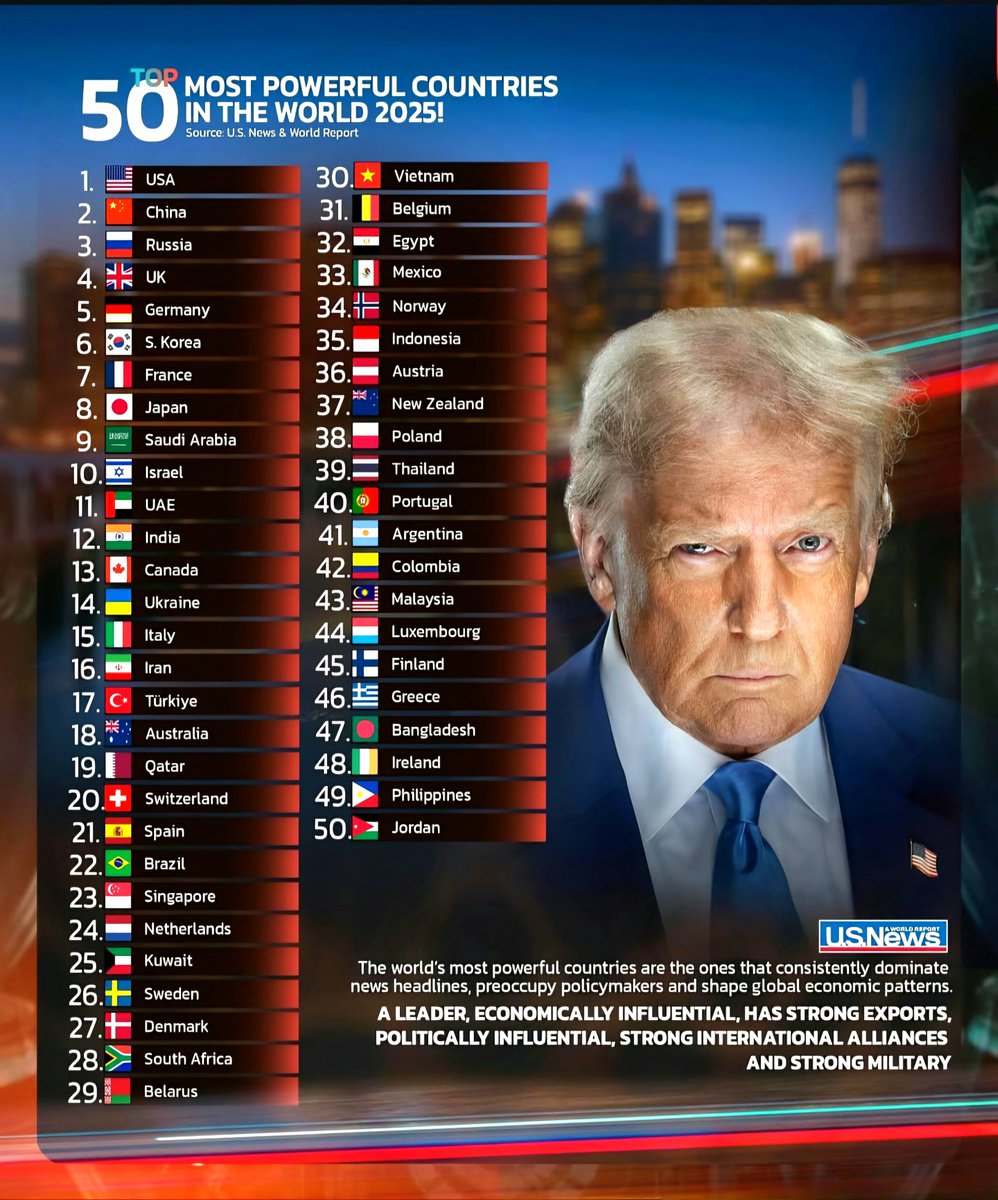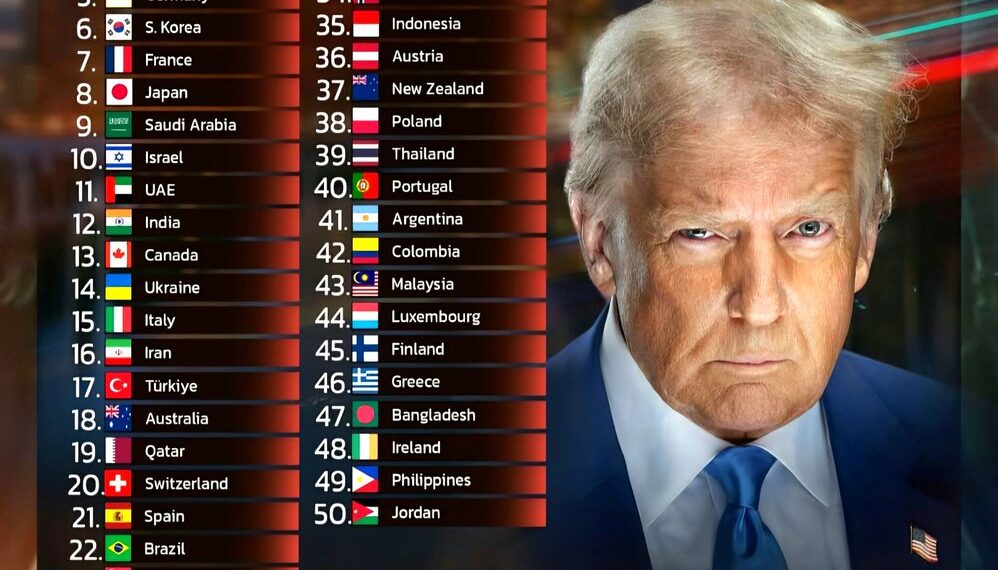Select Language:

2025’s Top 50 Most Powerful Countries in the World: A Country-by-Country Breakdown
1. United States
The United States continues to hold the top spot as the most powerful nation globally in 2025. Its unmatched military strength, technological innovation, and economic influence contribute significantly to its status. The U.S. maintains numerous global alliances, including NATO, and leads in areas like Silicon Valley and Hollywood. Its strategic military bases worldwide and substantial soft power in culture and diplomacy reinforce its superpower position.
2. China
Standing steadfast at second place, China’s rapid economic growth and expanding military capabilities bolster its influence on the global stage. The Belt and Road Initiative has solidified China’s role in international infrastructure and trade. With technological advancements in AI and 5G, Beijing’s focus on connecting the world economically underscores its rising global clout.
3. Russia
Despite economic challenges, Russia’s military prowess and nuclear capabilities ensure its enduring strategic importance. Moscow maintains strong alliances with regional powers, asserting influence over Eastern Europe and parts of Central Asia. Its energy exports, particularly oil and natural gas, secure its economic leverage.
4. United Kingdom
Post-Brexit, the UK remains a major global player, thanks to its financial sector, diplomatic influence, and strong military. London’s role in international finance and its formal alliances with the US and other NATO members keep it critical on the world stage. The UK’s soft power is also evident through cultural exports and diplomatic engagement.
5. Germany
Europe’s economic powerhouse, Germany’s technological innovation, manufacturing strength, and political stability bolster its geopolitical influence. The nation plays a critical role within the European Union, shaping policies on climate, trade, and security. Berlin’s partnerships extend globally, especially in Africa and Asia.
6. South Korea
South Korea’s technological prowess, particularly in electronics and automobiles, leads to sustained global influence. Its military alliance with the United States and strategic diplomacy in Northeast Asia emphasizes its security importance amidst regional tensions with North Korea and China.
7. France
As an influential member of the European Union and holder of nuclear capabilities, France’s diplomatic initiatives and military interventions stand out. Paris also exerts soft power through its culture, language, and global diplomatic missions, particularly in Africa and the Middle East.
8. Japan
Japan continues to be a technological and economic leader. Its innovations in robotics, automotive engineering, and consumer electronics reinforce its global influence. Japan’s strategic partnerships and Self-Defense Forces enhance its security presence worldwide.
9. Saudi Arabia
Saudi Arabia’s control over significant oil reserves and investments in diversifying its economy through Vision 2030 underpin its regional influence. Its diplomatic efforts in the Middle East and strategic relations with Western powers bolster its international stature.
10. Israel
Israel’s technological innovation, especially in cybersecurity and medicine, maintains its global prestige. Its military capabilities and strategic alliances, notably with the U.S., solidify its security and diplomatic influence in geopolitically sensitive regions.
(Remaining countries continue in detailed sections, emphasizing their economic, military, and diplomatic strengths)
The world’s power landscape in 2025 reflects a complex interplay of military strength, economic leadership, diplomatic influence, and technological innovation. Countries that excel in these domains are positioned to shape global policies, influence international markets, and lead diplomatic initiatives. From the technological titan of South Korea to energy-rich nations like Saudi Arabia, each country on this list contributes uniquely to the worldwide power hierarchy.
Key Factors that Define Global Power in 2025
- Military Might: Countries like the U.S., Russia, and China possess formidable armed forces that act as deterrents and influence regional stability.
- Economic Influence: Major economies such as the U.S., Germany, and Japan underpin their geopolitical clout through trade, industry, and investments.
- Diplomatic and Strategic Alliances: Strong international relationships and alliances like NATO, QUAD, and regional pacts amplify national influence.
- Technological Prowess: Innovation hubs in South Korea, Japan, and Germany drive economic growth and national security.
- Energy Resources: Oil, gas, and renewables confer strategic advantages, especially for nations like Saudi Arabia, Russia, and Qatar.
The global power structures are constantly evolving, and nations that adapt to shifts in technology, diplomacy, and economics are poised to ascend further in the coming years.
Source: U.S. News & World Report, 2025.






